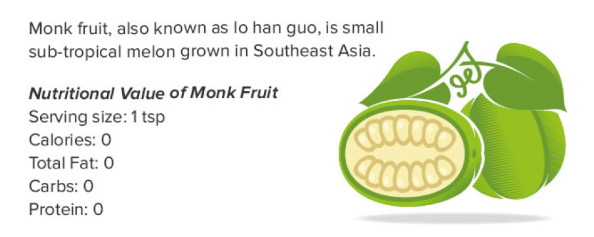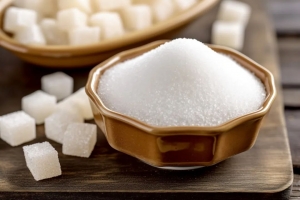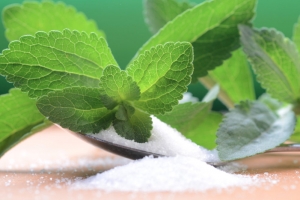Zero Calories
Aspartame Free
Tooth Friendly
NON GMO
Tastes just like cane sugar
Kosher
Low to Zero increase blood sugar levels
Non Artificial
Anti inflammatory
Antioxidant
Monk fruit Sweetener WHOLESALE

Contact Information:
Cell Phone: +86-139 7487 5747
Whatsapp: +86-139 7487 5747
Wechat: +86-139 7487 5747
Mon to Fri 09:00 am – 6:00 pm
E-mail: Colin@nutra-max.com
### Monk Fruit Sweetener: A Healthy Alternative
Monk fruit, also known as luo han guo, has been utilized in traditional Chinese medicine for centuries due to its perceived health benefits. When used as a sweetener, monk Fruit Extract offers several advantages over traditional sugar and other artificial sweeteners. Here are some potential health benefits of monk fruit:
- **Zero Calories:** Monk fruit sweetener contains natural compounds called mogrosides, which provide sweetness without any calories. This makes it an ideal sugar substitute for those aiming to reduce their calorie intake and manage their weight.
- **Low Glycemic Index:** Monk fruit sweetener has a negligible impact on blood sugar levels. Unlike regular sugar, it does not elevate blood glucose levels, making it a suitable choice for people with diabetes or those wishing to maintain stable blood sugar levels.
- **Antioxidant Properties:** Monk fruit contains mogrosides, which are potent antioxidants with anti-inflammatory and free-radical scavenging properties. These properties may help protect the body from oxidative stress and reduce the risk of chronic diseases.
- **Anti-Inflammatory Effects:** Some studies indicate that monk fruit extract may possess anti-inflammatory effects, potentially benefiting individuals with inflammatory conditions.
- **Digestive Health:** Monk fruit extract may have mild laxative properties, which could be beneficial for individuals experiencing constipation.
- **Suitability for Allergies:** Monk fruit is a natural sweetener unrelated to common allergens like wheat, soy, or nuts. As a result, it can be a suitable sweetener option for people with certain food allergies.
- **Oral Health Benefits:** Unlike regular sugar, monk fruit sweetener does not promote the growth of harmful bacteria in the mouth, which can lead to dental cavities. Therefore, it may be less likely to cause tooth decay.
It is important to note that while monk fruit extract is generally considered safe, individual responses to sweeteners may vary. Consulting with a healthcare professional, especially if you have specific health concerns or conditions, is recommended before incorporating monk fruit into your diet. Further research is needed to fully understand the long-term health effects of regular monk fruit sweetener use.
### Monk Fruit vs. Erythritol: Two Popular Sugar Substitutes
**Monk Fruit:** Monk fruit sweetener is derived from the extract of the monk fruit, a small round fruit (Siraitia grosvenorii) native to southern China and parts of Southeast Asia. The extraction process involves crushing the fruit and collecting its juice, which is then processed to remove water and impurities, leaving behind a concentrated sweetener. The sweetness in monk fruit comes from natural compounds called mogrosides, which offer sweetness without calories or carbohydrates.
**Erythritol:** Erythritol is a sugar alcohol found naturally in some fruits, such as grapes and pears, and is also produced through a fermentation process. Commercially, erythritol is produced by fermenting glucose derived from cornstarch with specific yeasts or fungi. During fermentation, the glucose is converted into erythritol, which is then purified and crystallized. Erythritol is valued as a sugar substitute due to its low caloric content and minimal effect on blood sugar levels.
Both monk fruit and erythritol are well-regarded as low-calorie sweeteners and are used as sugar alternatives in various food and beverage products, particularly in products designed for individuals looking to reduce their sugar and calorie intake.
 The regulation of Monk Fruit Extract (also known as Luo Han Guo extract) varies across different cou
The regulation of Monk Fruit Extract (also known as Luo Han Guo extract) varies across different cou
 Health Canada Approves Monk Fruit Extract as a Natural Sweetener
Health Canada Approves Monk Fruit Extract as a Natural Sweetener
 New Breakthrough in Allulose: A Healthier Sugar Alternative Gains Momentum
New Breakthrough in Allulose: A Healthier Sugar Alternative Gains Momentum
 Understanding Reb-M: The Benefits of a Next-Generation Sweetener
Understanding Reb-M: The Benefits of a Next-Generation Sweetener